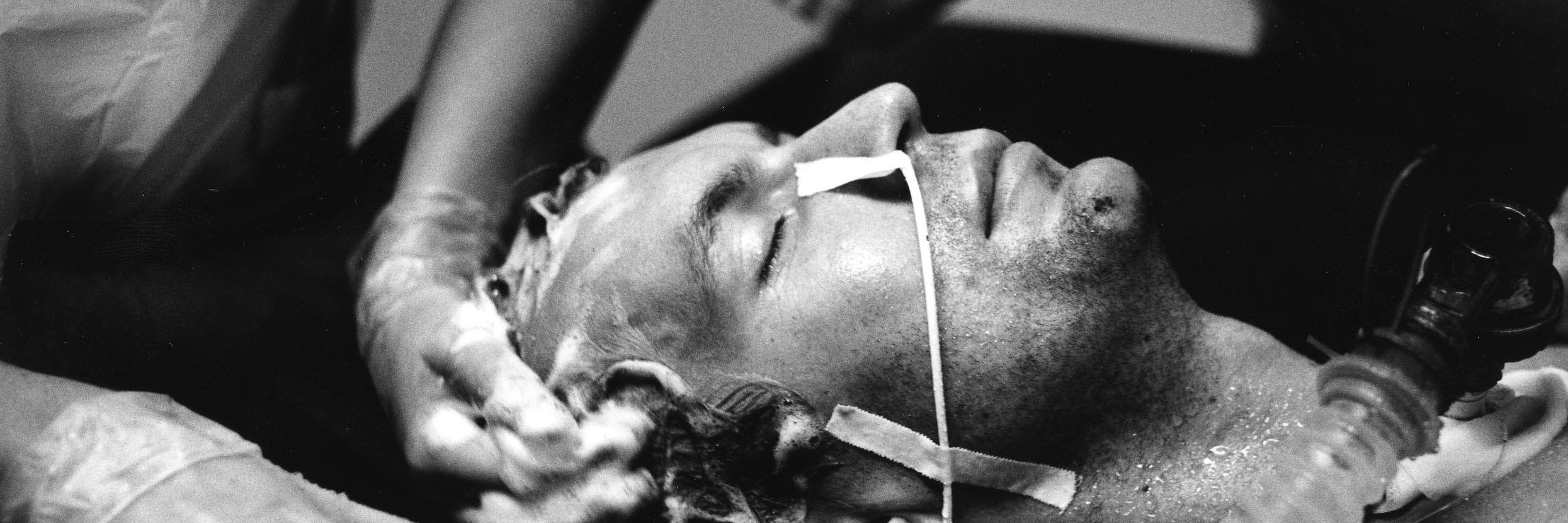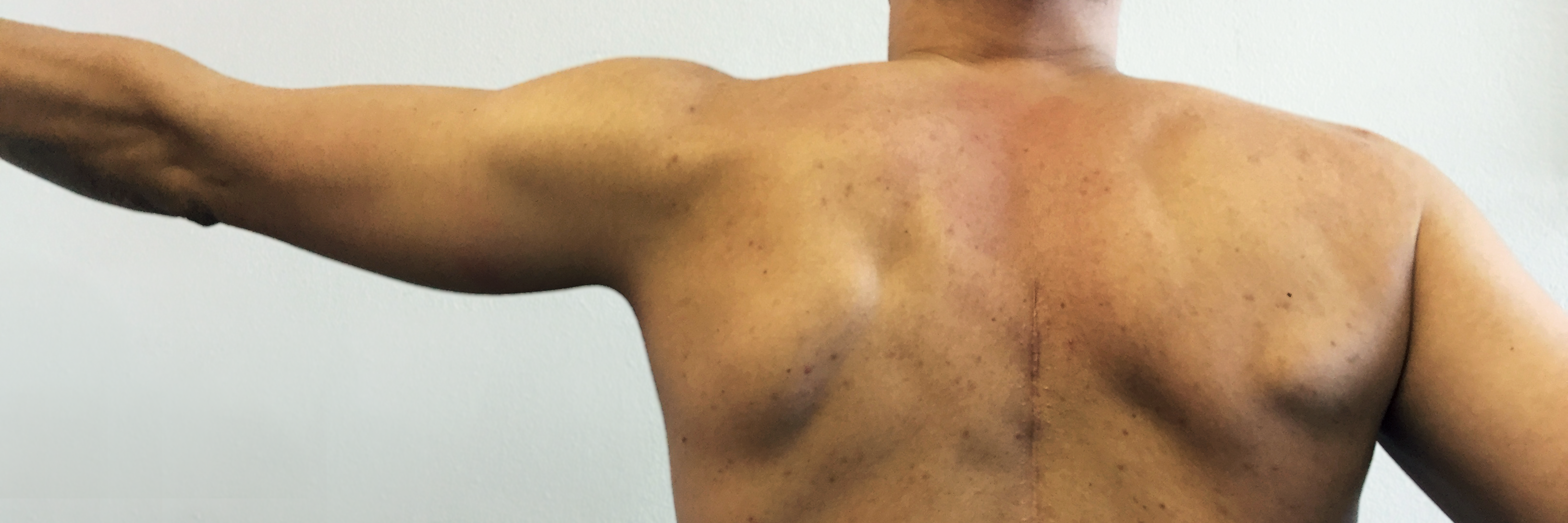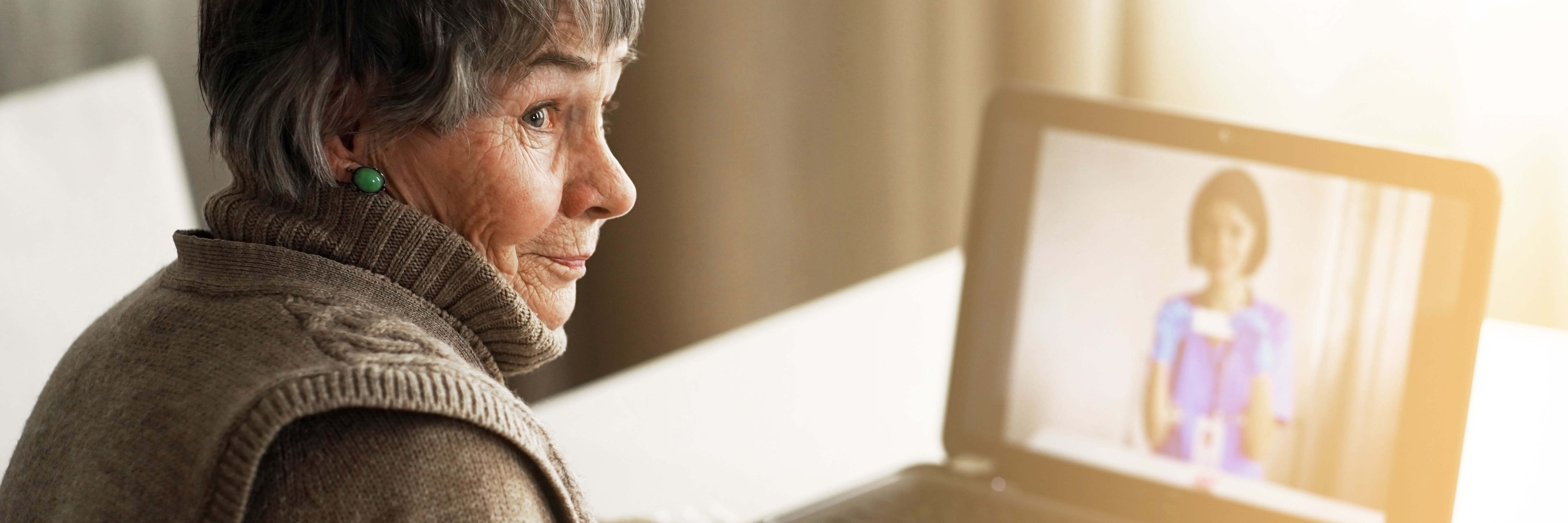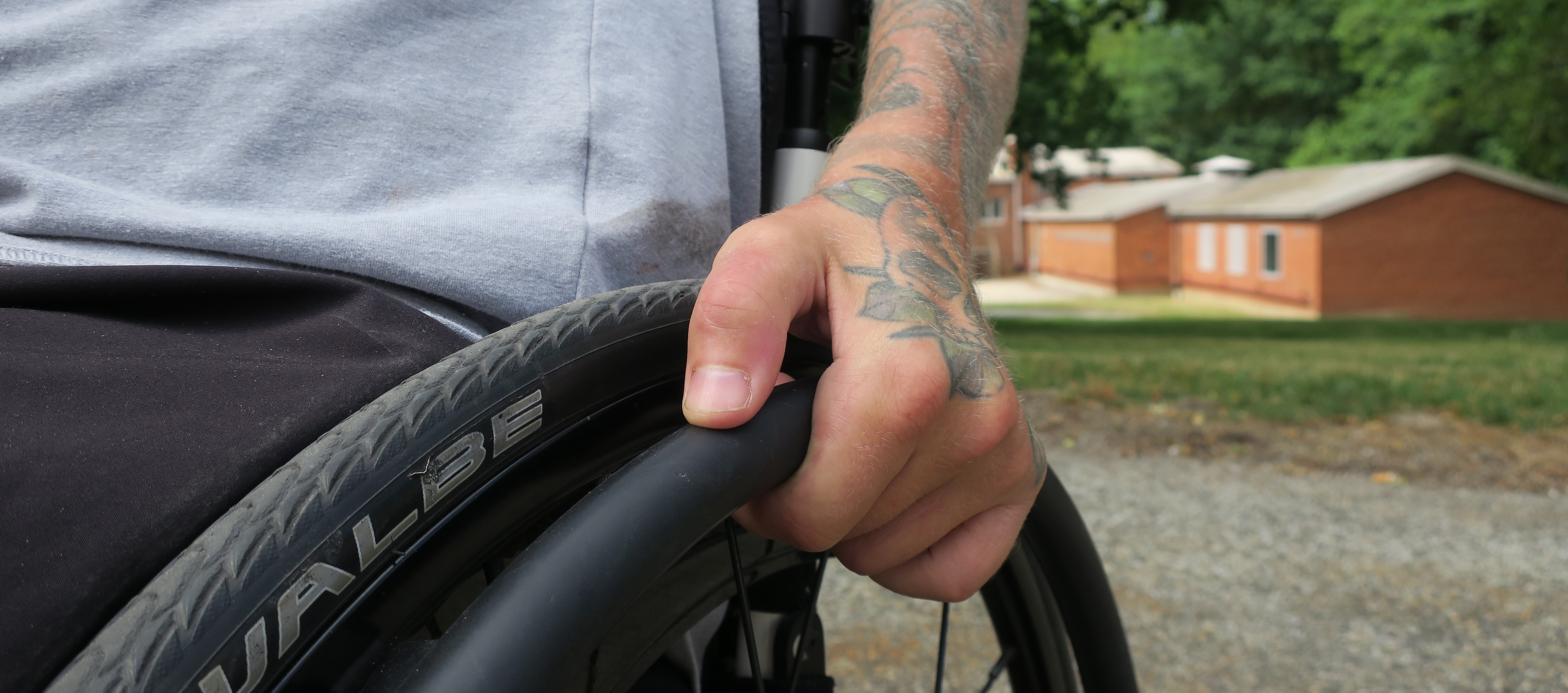
There are many benefits of attending a workshop! A workshop may introduce a new idea or inspire you to further explore it on your own, or illustrate and promote actual process in practice.
Here is a summary of the current workshops:


NutriNord_SCI is a multidisciplinary network for health-professionals in the Nordic countries interested in, or working with, areas linked to nutrition and SCI.
The aim of this workshop is to share knowledge, challenges and examples on integrating nutrition in all phases of SCI rehabilitation - from the acute phase to living and aging with SCI.
Workshop structure


Endless of individuals with SCI have praised peer support as a critical and effective strategy when resuming their participation in society. Yet, peer support is often an ill-defined additive with a vague role in rehabilitation. So, how can this valuable resource of individuals with lived experience be thoroughly integrated into care? How do we ensure adequate training? And how do we facilitate community peer support outside our clinics?
Not only will this workshop provide stimulating examples of organisations and individuals providing in-patient and community peer support and present research on what is required from peer supporters to help fulfill the needs of individuals with SCI, it will also tell the success story of how high-quality peer support made its way into the care of persons with mental health problems and what we may learn.
During the workshop you will get the chance to reflect upon how you can help move rehabilitation forward with the use of peer support.


Cervical SCI may result in respiratory insufficiency and is a common cause of morbidity and mortality both in the acute phase after injury and later. Accordingly, respiratory rehabilitation is important after SCI to identify, preserve and restore as much respiratory function as possible while providing sufficient support of breathing and secretion management when necessary.
Breathing, secretion management, and swallowing, may all influence the strategy for regaining a voice for verbal communication. Swallowing difficulties in cervical SCI may be multifactorial and can cause respiratory complications.
This workshop features both oral presentations and discussions of rehabilitation and treatment. Traditional ventilator treatment, electric stimulation (phrenic pacing or diaphragm pacing) as an alternative to traditional ventilator treatment, swallowing rehabilitation, approaches to dysphagia, and communication strategies in individuals with a tracheal cannula will be covered in the context of cervical SCI.


The prevalence of shoulder dysfunction is high in the SCI community and is likely to be even more common due to the increasing number of years people survive a SCI today.
Physiotherapy is in many cases sufficient, however, occasionally surgery is necessary. Unfortunately, there are few shoulder surgeons who have the appropriate insight into the extraordinary challenges facing persons with SCI, therefore pre- and post-surgical management must be clarified.
During this workshop we will share experiences and agree on some common "rules" regarding surgical intervention on SCI shoulders. Our goal is to increase the effectiveness of surgery and communication between medical specialties.


This workshop offers an overview of the use of telerehabilitation and inspiration from national and international pioneers in the field. We will discuss how we can further develop telerehabilitation with ideas that might promote innovation, improved access to care and competence and new scientific discovery.
The COVID-19 pandemic has impacted all aspects of health care delivery and increased the need for distance consultations. Telerehabilitation refers specifically to clinical rehabilitation services with the focus on evaluation, diagnosis, as well as treatment, and can be provided in a variety of ways. The shift to telerehabilitation provides a tremendous learning opportunity.


The opportunities to improve upper limb function after spinal cord injury, and thereby patient’s independence and quality of life, is continuously evolving. This workshop aims to provide an overview of surgical interventions to optimize upper limb function in the tetraplegic population available today. It will cover aspects such as patient selection and preparation, surgery and rehabilitation strategies, and outcome and consumer perspective. Current treatment strategies will be discussed in a multidisciplinary setting together with specialized surgeons and therapists.

The health risks of prolonged sitting are widely acknowledged, and guidelines for people with mobility impairments recommend to limit the amount of time spent sedentary (sitting or lying down). This workshop will present the latest clinical evidence of standing and what impact it can have on their secondary complications. Furthermore, we will present what is known on the functional impact (how can standing be used in daily life), as well as the psychosocial impact (how does it make you feel and how can it influence the interaction with others).
Workshop structure

A spinal cord injury (SCI) affects the human body in many ways, including the impairment of thermoregulation, which can have serious consequences. The aim of this workshop is to educate and inform participants about the importance of thermoregulation and how to manage it in patients with an SCI. More specifically, we want to give participants the tools to talk about heat and moisture related complaints with their patients, present the most up-to-date clinical evidence and offer advice on how to best recognise and treat thermoregulatory issues for people with an SCI. The workshop will comprise an oral presentation on clinical research, followed by a group discussion. I also attached a picture that can be used alongside the text. Or did you mean a picture of me as a presenter?

This workshop offers an overview of the use of tSCS after spinal cord injury, describing underlying mechanisms of the stimulation, reporting results from pilot studies and presenting a user perspective. In addition, we will present an example of implementation in clinical practice including a discussion and time to share experiences.

Adults with Spina Bifida Mmyelomeningocele (SBM) often have characteristic challenges that affect everyday life. Although, they have much in common with people with SCI, they are often neglected when it comes to systematic multidisciplinary care and follow-up routines. Why? The aim of this workshop is to listen to the voices of adults with SBM with regard to their needs, and to discuss recent research in this field. Representatives of persons with SBM and their organizations will give their picture of their challenges in everyday life as well as their expectations on the healthcare system and society. Recent research from Resource Center for Rare Disorders (TRS), Sunnaas Rehabilitation Hospital, and the Spinalis Clinic, in the field of adults with SBM will be presented. And finally, we will discuss how individuals with SB and researchers can work together to improve everyday life of persons with SBM.

Almost all wheelchair users with SCI will experience pressure ulcers, which impose great suffering for the individuals as well as great costs for society. In order to prevent and stop pressure ulcers as soon as possible, the patient needs to be educated about pressure ulcers and how to react at an early stage. Through a team effort with a holistic point of view, it is easier to increase knowledge and understanding for the patient in order to improve self-efficacy and self-care strategies. Also, we will discuss the tough challenge both physically and mentally, to be confined to bedrest during months or years, from user and professional perspectives.

This workshop will elaborate on and further discuss a bowel management project initiated by a team of Nordic Nurses at the last NoSCoS meeting in Copenhagen 2019. While trying to identify which bowel management is offered to spinal cord injured patients in the Nordic countries we faced questions such as; What are the official guidelines and do our protocols follow them? What counts as a success criteria in bowel management? What is the time span from start of a new bowel management initiative to evaluation? What do we need to document in order to make a good evaluation? And last but not least - how do we spread the knowledge to our colleagues?
As the title of this workshop indicates, the focus will be on the inpatient-care in the initial rehabilitation, knowing that bowel management will change over time.

ReWork-SCI is a person-centred intervention addressing the return-to-work (RTW) process after spinal cord injury (SCI). The intervention is supported by a coordinator and integrates systematic and structured methods for establishing goals, facilitating dialogue between stakeholders, and follow-up. In this workshop, we will share insights from the development and evaluation of ReWork-SCI which included different stakeholder groups, such as persons with SCI, health care professionals, employers, representatives from the Swedish social insurance agency and the Swedish employment office. The structure of the workshop includes short presentations from the presenters’ research to introduce participants to key concepts and provide triggers for discussion. Participants will then be invited to small group discussions around focused questions followed by reporting back and sharing in larger group. Interactive methods to facilitate an exchange between participants, as well as digital documentation, will be utilized. The workshop includes,
a) Intervention components for ReWork-SCI;
b) Coordination of RTW between rehabilitation services, the person with SCI, and the workplace, and;
c) Expectation-experience discrepancies among three stakeholder groups when re-entering the ‘job-bubble’ after SCI.
Learning objectives

During the meeting professional/consumer workshops will be held. Please contact the following persons if you have proposals for topics.
Physical Therapists
Emelie Butler Forslund
We would like to present the result of a Swedish joint venture regarding shoulder pain in persons with SCI who use wheelchairs. A summarising flow chart with aspects to bear in mind and a suggestion of structure based on current literature. It is not rocket science but an easy to use guide for colleagues working in the field with various prerequisites. If you are an not a PT but have an interest in the topic, feel free to join us.
We also welcome other suggestions on topics for the meeting, please get in touch.
Occupational Therapist – The professional Occupational network meeting
Johanna Wangdell & Lisa Holmlund
At the professional Occupational network meeting you have the opportunity to participate in interviews of Occupational therapist who have specialized in specific topics in the rehabilitation of people with SCI. They will share their knowledge in the following areas:
- ADL tips and tricks – Carin Bergfeldt, Rehab Station, Stockholm
Return to work – Lisa Holmlund, Karolinska Institutet, Stockholm
Hand assessment – Therese Ramström, Center of Advanced Reconstruction of Extermities, C.A.R.E., Gothenburg.
The interviews are chaired by Johanna Wangdell, Sahlgrenska University hospital, Gothenburg.
Welcome!
Registered Nurses
Malin Nordin & Randi Steensgaard
1. Presentation of the Governing Panel of the Professional Network for SCI Nurses in NoSCoS
- Why is it important to organize nurses in a Professional Network?
- How do we work and what is our aim?
- How do we build a strong collaboration between nurses in the Nordic countries? Join us!
2. Benefits from working together: Follow-up on the bowel project that started during the last meeting
3. Nurses as a part of ISCoS
4. Getting together over a new subject
5. Questions
Psychologists
Anna-Lena Österåker
The agenda for the meeting is as follows:
1) Follow-up on proceedings since our last (virtual) meeting.
2) Group discussion on The Psychologist as a participant in multi-disciplinary teams: What is our special contribution and which dilemmas do we encounter when trying to serve the patient as well as the team?
3) How do we reach out to other Psychologists working with SCI in the Nordic countries?
4) How to get involved in NoSCoS and ISCoS
Social Workers
Emma Wisler
A professional meeting for social workers and psychologists within spinal cord injury management will take place during NoSCoS 2022. We also welcome other suggestions on topics for the meeting, please get in touch.
Rehab Instructors
Sebastian Forsén
A professional meeting for rehab coaches within spinal cord injury management will take place during NoSCoS 2022. We also welcome other suggestions on topics for the meeting, please get in touch.
Medical Doctor
Vasilios Stenimahitis
More information to come...
Consumers - Consumer involvement in SCI care
Tobias Lauritsen
Consumer involvement in care! A noble thought, supported by all levels of healthcare management from national government policies to local decision makers and individual care providers. But as a healthcare consumer living with a spinal cord injury, what is your take on your or your representatives’ involvement in the care provided, in research, governance and quality improvement? Is consumer involvement flawless, is there room for improvement or do you see a need for a complete revamp?
We will set the bar for future consumer involvement expectations when discussing this together with the consumer organisations from the Nordic countries.
Learning objectives:

Need any help? Please get in touch we will be happy to assist you.